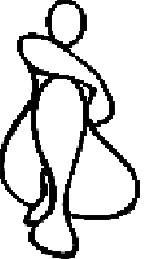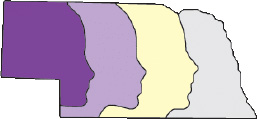Am thinking hard about re-evaluating my artist statement for the era of iPads and Facebook. I wrote this in 2000 and haven't substantially revised it.
"I'm amused by the lingering rhetoric of futurism--the Buck Rogers, 'machines-will-change-our-lives' spieling--that continues to surround digital production in our society. The computer is a tool, not magic, and possesses its own tragicomic limitations as well as offering new means of expression and communication. I am intrigued by the idea of making some kind of advanced art with this apparatus--objects, images, and installations that hold up to prolonged scrutiny in real space. At the same time, I am drawn to 'cyber-kitsch' in all its forms, whether in old programs such as MSPaintbrush, the amateur imagery that abounds on the Web, or the unintended poetry of technical glitches. My work proudly inhabits the 'lo-fi' or 'abject' end of the digital spectrum."
I have been accused of "battling Internet change" and the statement above was offered as Exhibit A.
The person who made this suggestion is a Mac user and a Facebook user who resents any suggestion that those might be corrupt empires. These are his lifestyle choices and are by definition not sleazy, so no critique will be brooked. He also doesn't appreciate the use of animated GIFs as a form of in-browser expression, believing them to belong to the era of avatars on bulletin boards.
Just because computer and Internet speeds have increased and the web has become a more streamlined place of consumption doesn't mean things work well, though. I seem to recall a recent smartphone that had to be held a certain way for the antenna to work, an operating system called "Vista," and a New York-based art-and-technology center whose reblog archives vanished one day without a trace--years of work by guest bloggers, poof. Entropy can take many forms, including groupthink, bureaucratic idiocy, and collusion between large conglomerates to wall off public bandwidth for private gain. What are the artist's options when faced with this landscape? Mine are still to try to maintain an independent bleat of protest that can be registered without "logging in" to a website that demonstrably wants to "use your data," and also, to make artwork in the zone that Dan Graham has called the "recently outmoded." This means a double-edged use of the GIF: it is both an old, dot com era relic, and also something that browsers still read and that can be used in new ways, to make fast-loading animations operating below the corporate level of interest, support, and editorial control. Obviously when some tipping point is reached of "numbers of browsers that can't read GIFs" (75%? 50%?) another semi-obsolete tech will have to be found. By then it may be html5.
Mr. Mac-and-Facebook likened the GIF to 8-track tape players--but that's wrong, it's more like xerox and cassette tape, as they were used in the '80s. So, in conclusion, will probably not rewrite my statement, but am interested in any feedback others might have on the relevance of these assumptions. Please email (see FAQ page) or visit me on some social media website where you have to login but ZuckerBorg isn't listening in trying to use you.


